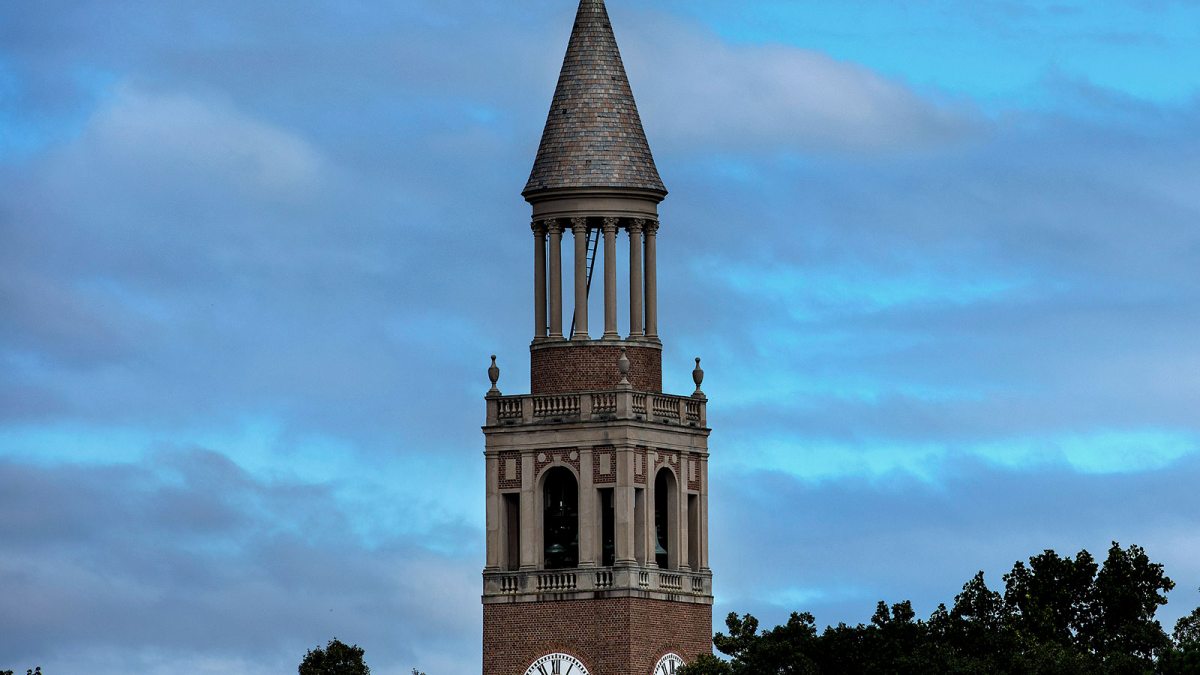Carolina continues ascent as a global research powerhouse
This is the second year in a row that UNC-Chapel Hill has placed in the top 10 in two categories.

The University of North Carolina at Chapel Hill is continuing its decade-long rise as one of the world’s top universities for sponsored research, climbing to eighth nationally among private and public research institutions in overall research and development (R&D) expenditures and sixth nationally in federal R&D spending.
This is the second year in a row that UNC-Chapel Hill has placed in the top 10 for both categories, underscoring its rising prominence as a leader in 21st-century research in both federal and overall research spending.
“Carolina’s rise to number six in federal research and number eight in total research in such a short time is truly remarkable and has resulted directly from competitive strength, creativity and impact of our outstanding faculty, staff and students,” said Chancellor Carol L. Folt.
“The nation is investing nearly a billion dollars this year alone in their ideas, and our faculty are putting that support to work right here in North Carolina, by pushing the boundaries in basic research, creating completely new fields and industries, and saving and improving lives here and across the world. Carolina’s reputation and success as one of the world’s premier research universities also attracts business, industry and talent to North Carolina, and we are immensely grateful to the citizens of our state for their support.”
Over the past decade, overall research expenditures for UNC-Chapel Hill have more than doubled, demonstrating the University’s value to both public and private sponsors of research. Since entering the top 10 in federal research expenditures in fiscal 2010, the University has retained its position as the largest beneficiary in North Carolina of federal investments in research.
The national rankings are computed annually by the National Science Foundation (NSF) as part of its Higher Education Research and Development survey. The survey ranks hundreds of U.S. colleges and universities using a uniform methodology developed by NSF to establish the amount of university spending on research and development. The vast majority of research spending is funded by federal research agencies, private industry and foundations. The latest NSF rankings cover fiscal 2014.
The current survey shows UNC-Chapel Hill expended $990 million on R&D activity of all types in 2014. Of that total, $610.7 million was sponsored by the federal government through agencies like the National Institutes for Health. The results strengthen the University’s reputation as a global leader in fields such as medicine, health and the physical and life sciences, as well as psychology and the social sciences. UNC-Chapel Hill research funding directly supports all or part of the salaries of more than 10,000 North Carolinians in counties across the state.
In 2014 the University spun out 10 new start-up businesses licensing technology developed from research dollars. A recent analysis conducted by Economic Modeling Specialists International on the economic impact of UNC-Chapel Hill revealed that, in 2013, spending by the University’s research enterprise contributed $1 billion in added income to North Carolina’s economy – an amount equivalent to 12,941 jobs in the state. The economic contribution of North Carolina businesses spun out of UNC-Chapel Hill was reported at $1.6 billion in added income, representing the equivalent of more than 15,000 jobs in the state.
Research at UNC-Chapel Hill also provides undergraduates with significant opportunities to learn by doing through hands-on research projects. Currently, more than 60 percent of UNC-Chapel Hill’s graduating seniors have conducted independent research and contributed to discoveries by Carolina’s top research faculty.
One reason for UNC-Chapel Hill’s ascent into the top 10 in overall and federal research rankings has been its ability to leverage state dollars with private support and other sources to attract competitive federal funding to North Carolina. Investments and policy decisions made by the North Carolina General Assembly in recent years have helped finance major initiatives at UNC-Chapel Hill, including the Marsico Hall Research Laboratories, the Genome Sciences Building, the Carolina Physical Science Complex and the University Cancer Research Fund. State support of these projects, including funds made possible through statewide bond referenda, have been essential to attracting new research dollars to North Carolina, providing a healthy return on the state’s investment.
“Investment by the state in our research universities pays tremendous dividends for our state’s economy,” said Vice Chancellor for Research Barbara Entwisle. “It makes it possible to bring new federal, foundation and corporate research dollars to North Carolina. Every dollar invested not only pays economic dividends, it attracts students and helps improve people’s lives.”




